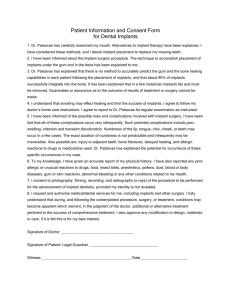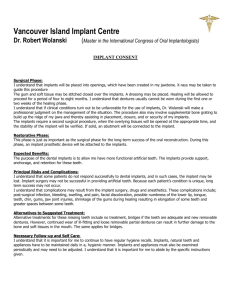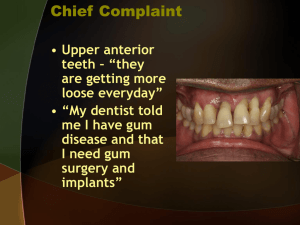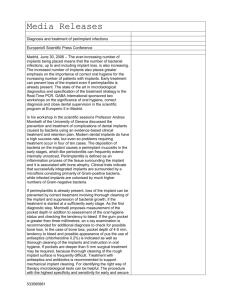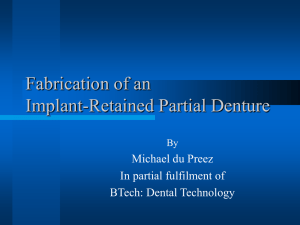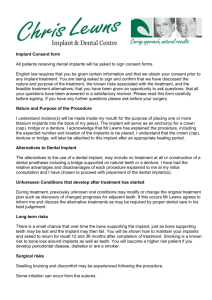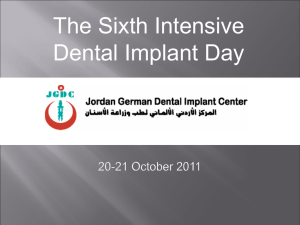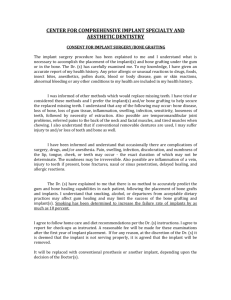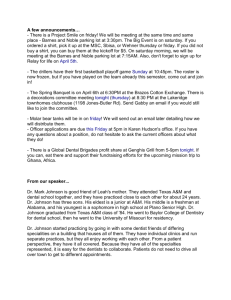NEWS RELEASE - Delta Dental of Wisconsin
advertisement
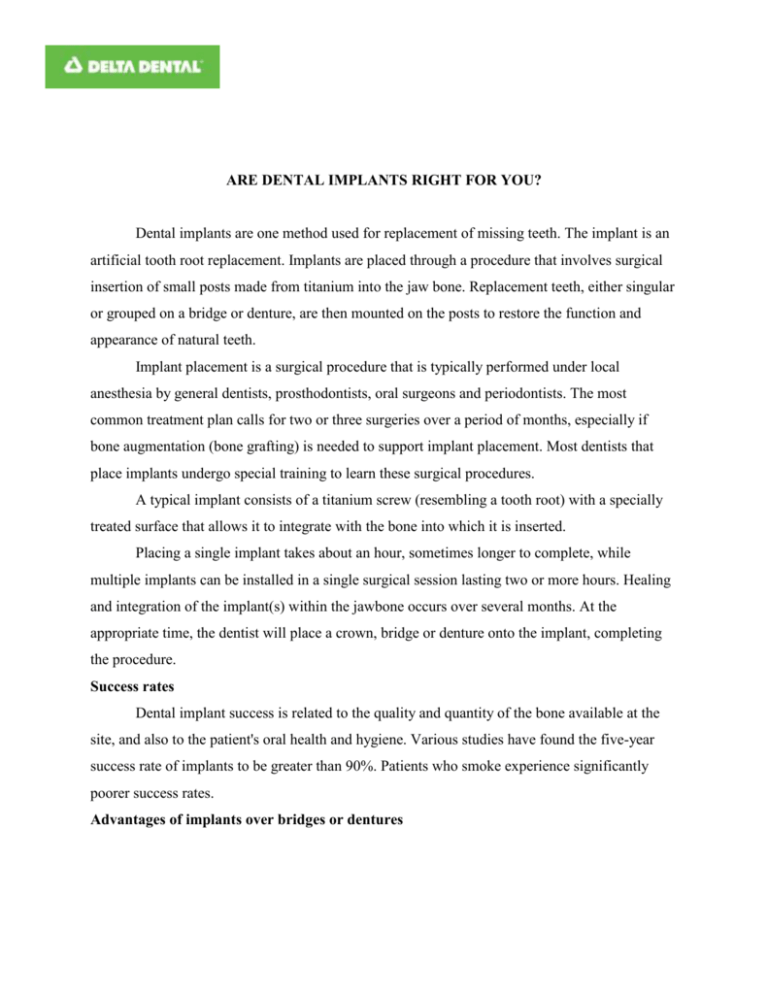
ARE DENTAL IMPLANTS RIGHT FOR YOU? Dental implants are one method used for replacement of missing teeth. The implant is an artificial tooth root replacement. Implants are placed through a procedure that involves surgical insertion of small posts made from titanium into the jaw bone. Replacement teeth, either singular or grouped on a bridge or denture, are then mounted on the posts to restore the function and appearance of natural teeth. Implant placement is a surgical procedure that is typically performed under local anesthesia by general dentists, prosthodontists, oral surgeons and periodontists. The most common treatment plan calls for two or three surgeries over a period of months, especially if bone augmentation (bone grafting) is needed to support implant placement. Most dentists that place implants undergo special training to learn these surgical procedures. A typical implant consists of a titanium screw (resembling a tooth root) with a specially treated surface that allows it to integrate with the bone into which it is inserted. Placing a single implant takes about an hour, sometimes longer to complete, while multiple implants can be installed in a single surgical session lasting two or more hours. Healing and integration of the implant(s) within the jawbone occurs over several months. At the appropriate time, the dentist will place a crown, bridge or denture onto the implant, completing the procedure. Success rates Dental implant success is related to the quality and quantity of the bone available at the site, and also to the patient's oral health and hygiene. Various studies have found the five-year success rate of implants to be greater than 90%. Patients who smoke experience significantly poorer success rates. Advantages of implants over bridges or dentures The main advantage of implants is that they allow for replacing a single missing tooth without the need to crown adjacent teeth, as is done with traditional bridges. Implants integrate with the jawbone, providing more stable and secure support for replacement teeth. Where multiple teeth are replaced, they generally feel more natural and comfortable than traditional partial dentures or dentures. Are implants right for you? Your dentist can evaluate whether or not implants are right for you. The condition of your mouth, your medical history, the supporting bone in your jaws and the way your teeth fit together are all important factors to consider. Also, you should ask your dentist what kind of training and experience he/she has in placing implants and whether you should receive the procedure from a specialist.
